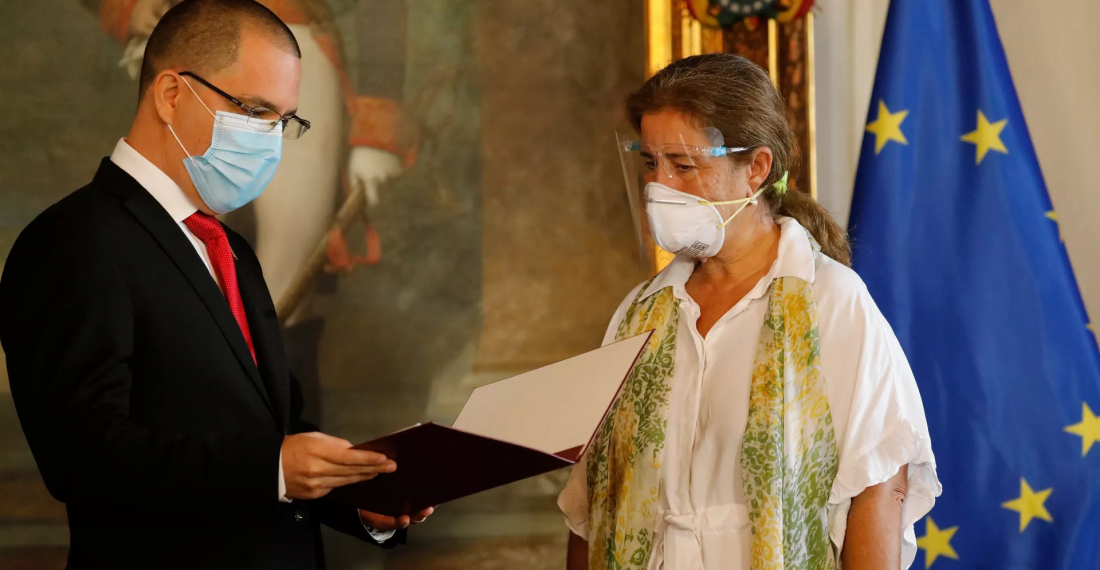Venezuela has expelled the European Union ambassador Isabel Brilhante Pedrosa from the South American country in retaliation for new European sanctions. The ambassador has to leave within 72 hours, announced the Minister of Foreign Affairs Jorge Arreaza. Brilhante has been declared persona non grata.
Venezuela was reacting to new measures announced by the EU earlier this week to sanction the Venezuelan regime of President Nicolás Maduro. The EU has imposed restrictions on nineteen high-ranking Venezuelan officials, legislators and members of the security forces. These include three officials of the electoral council. The reason for this is the controversial parliamentary elections held in December. Many top military officers, judges and other high officials are no longer allowed to travel to the EU. Also, their assets in the EU are frozen. According to the EU, the country is also violating human rights.
The High Representative of the Union for Foreign Affairs and Security Policy Josep Borrell on Wednesday (24 February) asked Venezuela to reverse Brilhante's deportation. "Venezuela can only overcome the current crisis through negotiations and dialogue. The EU is willing to facilitate this, but such a decision will not help”, said Borrell's spokesman.
Currently, 55 Venezuelan government officials and high-ranking officials are on the EU sanctions list. The country is also not allowed to buy weapons in the EU or things that it can use against its own population.







